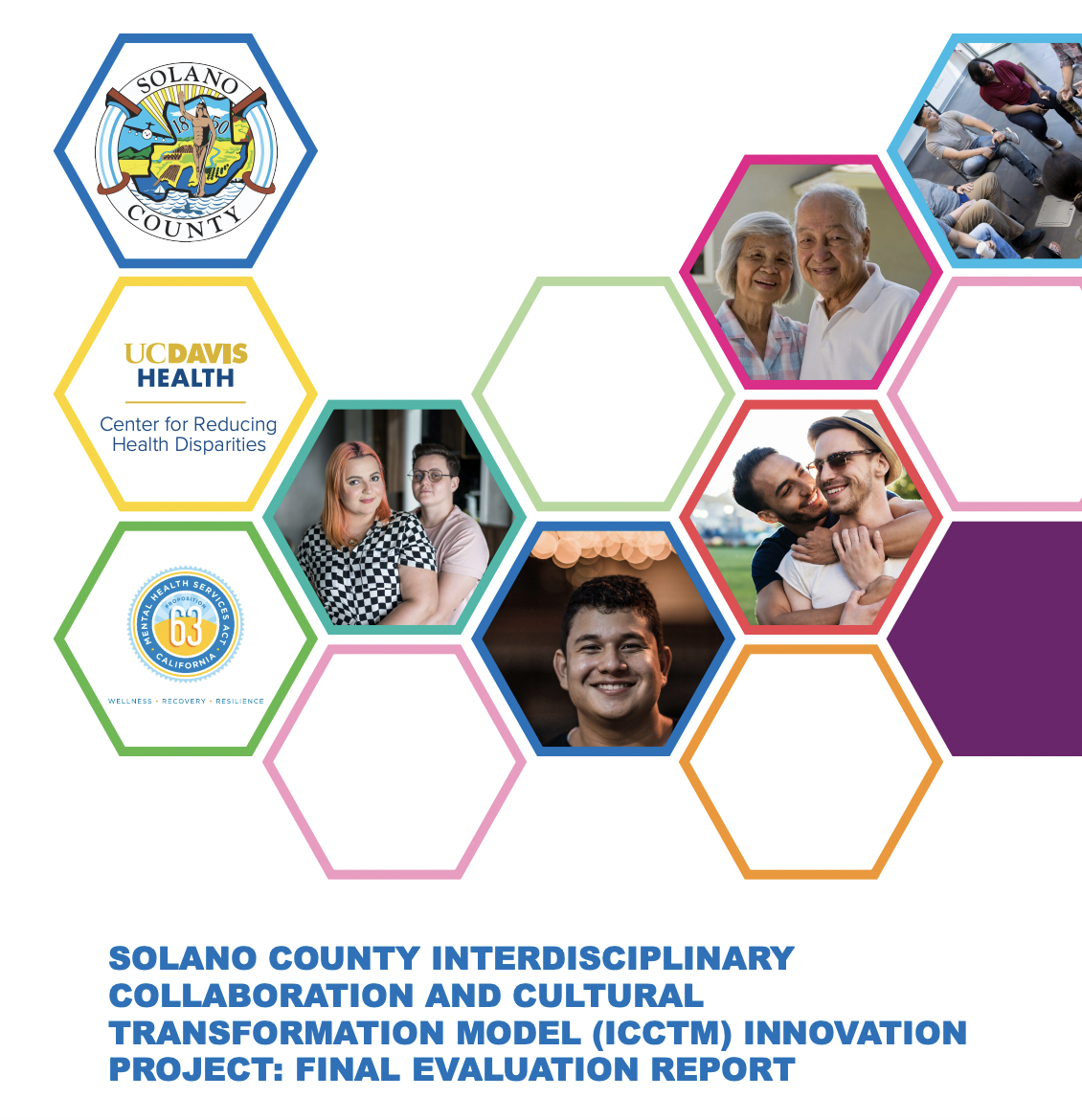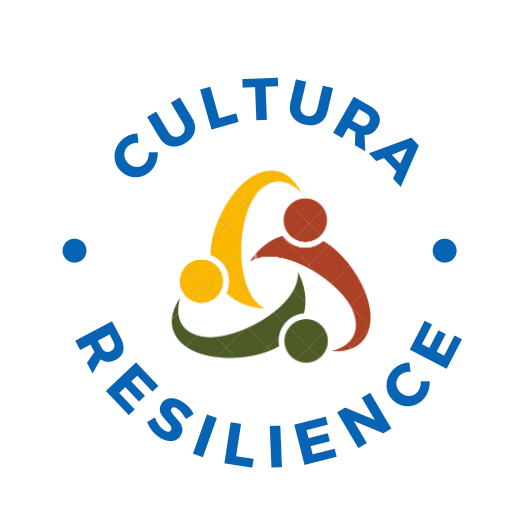Culture is Resilience
Notable Projects
California Reducing Disparities Project (CRDP)
In response to former U.S. Surgeon General David Satcher’s call for national action to reduce mental health disparities, the former Department of Mental Health (DMH), with support from the Mental Health Services Oversight and Accountability Commission (MHSOAC), the California Mental Health Directors Association (CMHDA) and the California Mental Health Planning Council (CMHPC), created a statewide policy initiative to identify solutions for historically unserved, underserved, and inappropriately served communities. Under the Office of Health Equity, this statewide Prevention and Early Intervention effort, the California Reducing Disparities Project (CRDP), focuses on five populations:

- African Americans
- Asians and Pacific Islanders (API)
- Latinos
- Lesbian, Gay, Bisexual, Transgender, Queer, and Questioning (LGBTQ)
- Native Americans
Solano County Interdisciplinary Collaboration and Cultural Transformation Model (ICCTM)

In 2016 Solano County Behavioral Health (SCBH), partnered with UC Davis Center for Reducing Health Disparities (CRHD), to launch a multi-phase, five-year community initiated Mental Health Services Act (MHSA) Innovation project known as the Solano County Interdisciplinary Collaboration and Cultural Transformation Model (ICCTM). There are three core components of the ICCTM model: 1. Community-Engaged Research 2. Culturally and Linguistically Appropriate Services (CLAS) Standards 3. Quality Improvement Action Plans and Sustainability.
ICCTM focuses on key cultural and linguistic competencies required to successfully highlight the experiences and mental health needs of Filipino American, Latino, and LGBTQ+ (Lesbian, Gay, Bisexual, Transgender, Queer/ Questioning) communities of Solano County.
Final Evaluation Report:
Accountability, Coordination, and Telehealth in the Valley to Achieve Transformation and Equity (ACTIVATE)

ACTIVATE is a demonstration project using digital health to improve the well-being of underserved and rural communities in partnership with community health centers. The ultimate goal of ACTIVATE is to promote telehealth, telemental health and remote monitoring as cost-effective strategies for health improvement, reaching and providing maximum benefit to at-risk and vulnerable populations. ACTIVATE is a collaborative effort between the University of California’s CITRIS, the Banatao Institute, MITRE and UC Davis Heath.
ACTIVATE – Overview:
Activate – Community Engagement: An Overview of General Strategy & Approach:
Community-Defined Solutions for Mixteco Health Care Disparities
The Community-Defined Solutions for Latino Mental Health Care Disparities report by Aguilar- Gaxiola and colleagues (2012) presents a comprehensive two-year study that detailed barriers to access and utilization of mental health services among Latinos in California. It also offers community-defined strategies and solutions for removing barriers and reducing mental health disparities. While comprehensive, based on more than 550 Latino participants statewide, the authors recognized that Latino indigenous groups were not carefully represented in the sample. In our attempt to avoid treating Latinos as a homogenous community, we identified and acknowledged the indigenous population (e.g., Mixtecos) as another severely underserved population that also struggles with mental health problems. In our recent study, we concluded, “Distinguishing among Latino subgroups (e.g., Mixtecos) from different regions and examination of their demography, history, culture, and views on mental health are important for future research on disparities” (Aguilar-Gaxiola, et al., 2012). This forms the rationale and purpose for the current report.

Final Report:
